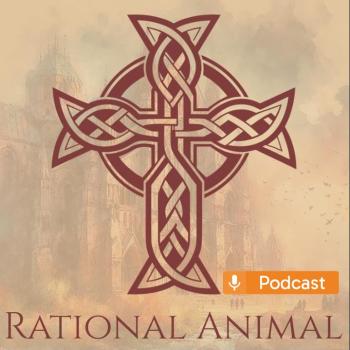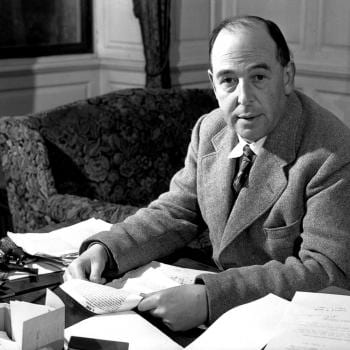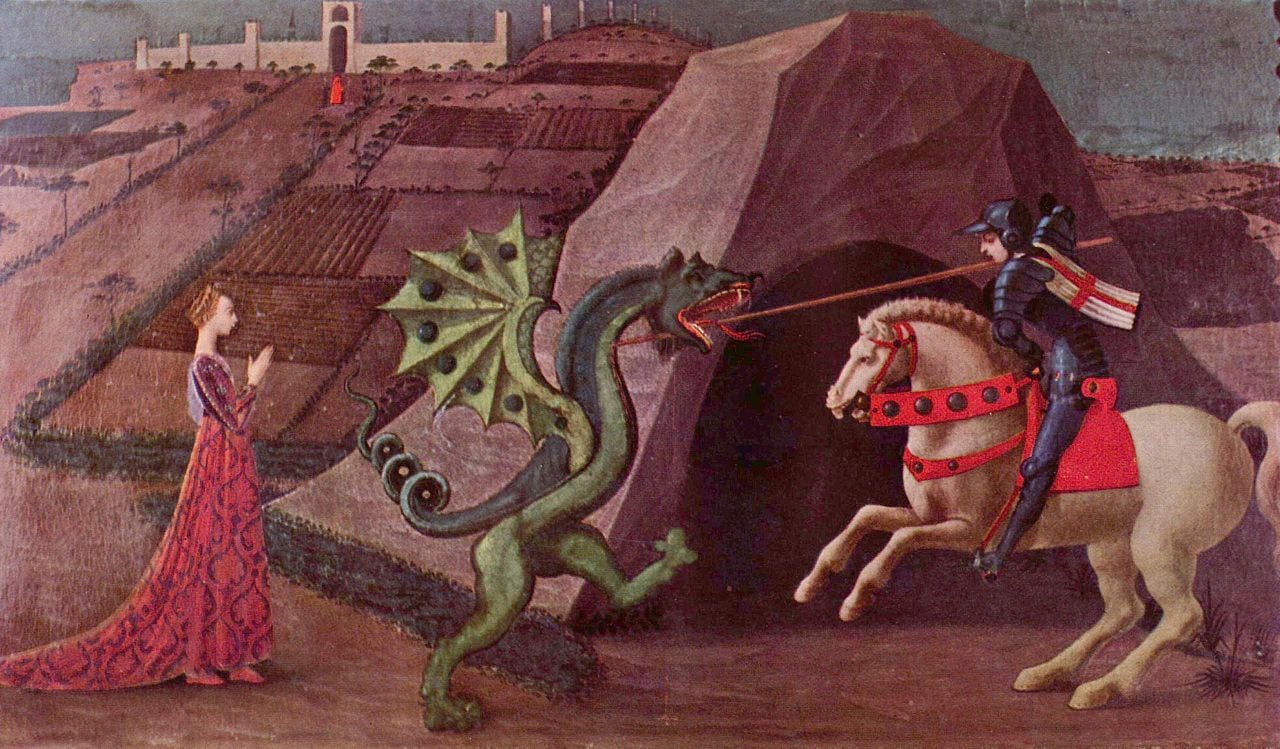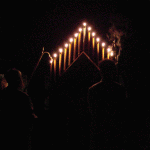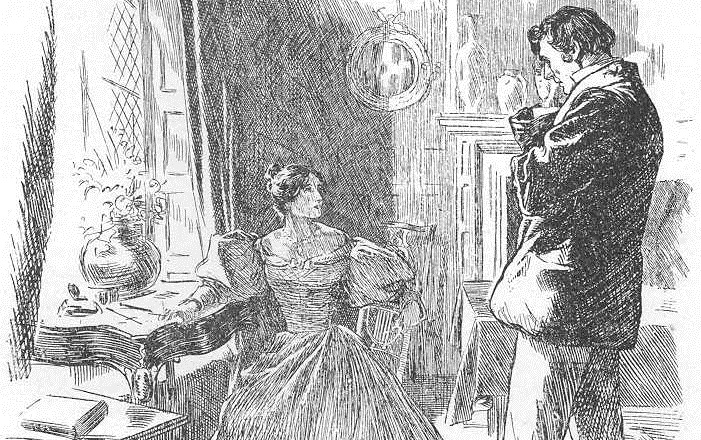
[Editor’s Note: This novel is probably being taught in 1,000 classrooms across the country as you read. . . but not like this!]
In her novel, Jane Eyre, Charlotte Bronte recounts the journey of a young governess, Jane, and her employer Mr. Rochester towards true love and happiness. Yet this journey is marked by imperfection because Mr. Rochester fears giving up his secret concupiscence. Concupiscence, here, must be understood as an inordinate desire for the good: while Mr. Rochester wants to wed Jane, he conceals his insane (but very much alive) wife on the third floor of Thornfield Hall. This sin makes him question his humanity—his dignity as a person; he wonders if he can find true happiness without surrendering his heart and all its secrets. He feels drawn to Jane because of her own self-knowledge and understanding of human dignity.
As Mr. Rochester and Jane explore this question of human dignity and concupiscence, the novel looks at Christ’s teaching on adultery: “You have heard that it was said, ‘You shall not commit adultery.’ But I say to you: Whoever looks at a woman to desire her has already committed adultery with her in his heart.” In Theology of the Body, John Paul describes this line as Christ’s appeal to the heart in which Christ calls man to reject concupiscence within his heart before he even acts upon it. As Jane and Mr. Rochester attempt to answer this call, they feel the effects of His next words, words that Jane paraphrases in her decision to flee Thornfield and a life of sin: “If your right eye causes you to stumble, gouge it out and throw it away. It is better for you to lose one part of your body than for your whole body to be thrown into hell. And if your right hand causes you to stumble, cut it off and throw it away.” Both Theology of the Body and the novel show Christ’s appeal to the heart, along with the challenge of rejecting concupiscence and finding salvation – especially for Mr. Rochester. Yet through Jane’s understanding of human dignity, Mr. Rochester acknowledges and repents of his concupiscence, thus answering Christ’s call and becoming what John Paul II calls “a new man.”
Because Mr. Rochester suffers under the burden of his secret marriage to a mad woman, he attempts to orchestrate his life in a world of falseness and concupiscence, desiring true love but unwilling to be vulnerable or honest with Jane. He knows that he is not fully human (though “I have all my limbs and features”) because he knows that he cannot give the gift of true love. John Paul explains the gift of love as the gift of self in which one gives entirely of himself for the good of the other, willing her happiness above his own. Because he hides himself from her, Mr. Rochester does not completely will Jane’s true happiness. He is not fully human because he does not fully love. Yet Jane possesses the purity and love that Mr. Rochester yearns for: “Purity is a requirement of love. It is the dimension of the inner truth of love in man’s heart” (TOB 325). Jane expresses her pure love for Mr. Rochester in choosing to leave Thornfield upon the discovery of Bertha Mason, the mad wife. As her heart responds to Christ’s appeal to the heart, Jane protects both her own purity and Mr. Rochester’s hope for redemption because she refuses to partake in sin, though Mr. Rochester calls it love.
Jane’s realization that she must leave Thornfield shows her response to Christ’s appeal to the heart. She knows that to surrender to her desire to be with Mr. Rochester would be adulterous. John Paul writes: “One must draw the conclusion that ‘adultery in the heart’ . . . signifies a clearly defined interior act” (TOB, 232). This interior act is the sin of adultery itself; it is an act of the heart, the interior core of Jane’s love as well as of her humanity. For this reason, Jane knows that she must exercise her will to reach into the depths of her heart and wrench out her desire to stay with Mr. Rochester. In her pain, she echoes Christ’s words after His appeal to the heart: “No; you shall tear yourself away, none shall help you; you shall, yourself, pluck out your right eye; yourself cut off your right hand: your heart shall be the victim, and you, the priest to transfix it.” She knows that Christ’s appeal for purity demands an utter rejection of concupiscence; so if she is to answer this appeal, she must tear herself away from that which she loves. Jane must sever a part of her to protect herself and Mr. Rochester. Yet Jane remains pure in her love because she wills the true good for both herself and Mr. Rochester.
In losing Jane, Mr. Rochester finds himself alone – and subconsciously responding to Christ’s appeal to the heart. His need to be alone shows his solitude before God wherein he finally recognizes his concupiscence and humanity, pointing back to John Paul’s concept of original solitude. Repentance and redemption come when Mr. Rochester attempts to save Bertha from the flaming Thornfield. After removing the servants from the fire that Bertha starts, Mr. Rochester returns into the burning house at the most perilous moment of the blaze. As his home burns, so do his sins. The innkeeper recalls, “We heard him call ‘Bertha!” This moment signifies the culmination of Mr. Rochester’s repentance because before, Mr. Rochester has seen Bertha as the object of suffering and the obstacle to his happiness. Yet in this moment of rescue, Mr. Rochester cries out her name, calling her to him. He finally acknowledges her dignity as a person. Bertha is no longer an object but a human soul. Regardless of his own position of danger, Mr. Rochester gives the pure gift of self to Bertha as he puts her good before his own, learning from Jane’s own sacrifice of happiness. Mr. Rochester’s redemption completes itself by pointing back the Sermon that John Paul emphasizes: “In the Sermon on the Mount, Christ does not invite man to the state of original innocence, because humanity has left it irrevocably behind, but He calls him to find . . . the living forms of the ‘new man’ ” (TOB, 323). Not only does Mr. Rochester physically become a “new man” through the loss of his limbs, but he spiritually severs his hand and plucks his eye as he repents. He answers Christ’s appeal to the heart.
Theology of the Body illuminates the couple’s response to Christ’s appeal to the heart. Likewise, Jane Eyre sheds light upon John Paul’s analysis. What Christ demands is an utter rejection of concupiscence, which is as painful and frightening as plucking one’s eye out. Mr. Rochester causes Jane suffer while he struggles to answer this call; her purity and his surrender lead them to conquering the passions. Their journey completes Theology of the Body by showing the pain experienced in answering Christ and attaining the redemption that comes from the domination of concupiscence just as John Paul II promises.
***
Madison Kearney is a Junior at Hillsdale College and is majoring in English and History. She has loved Jane Eyre since she was twelve.





